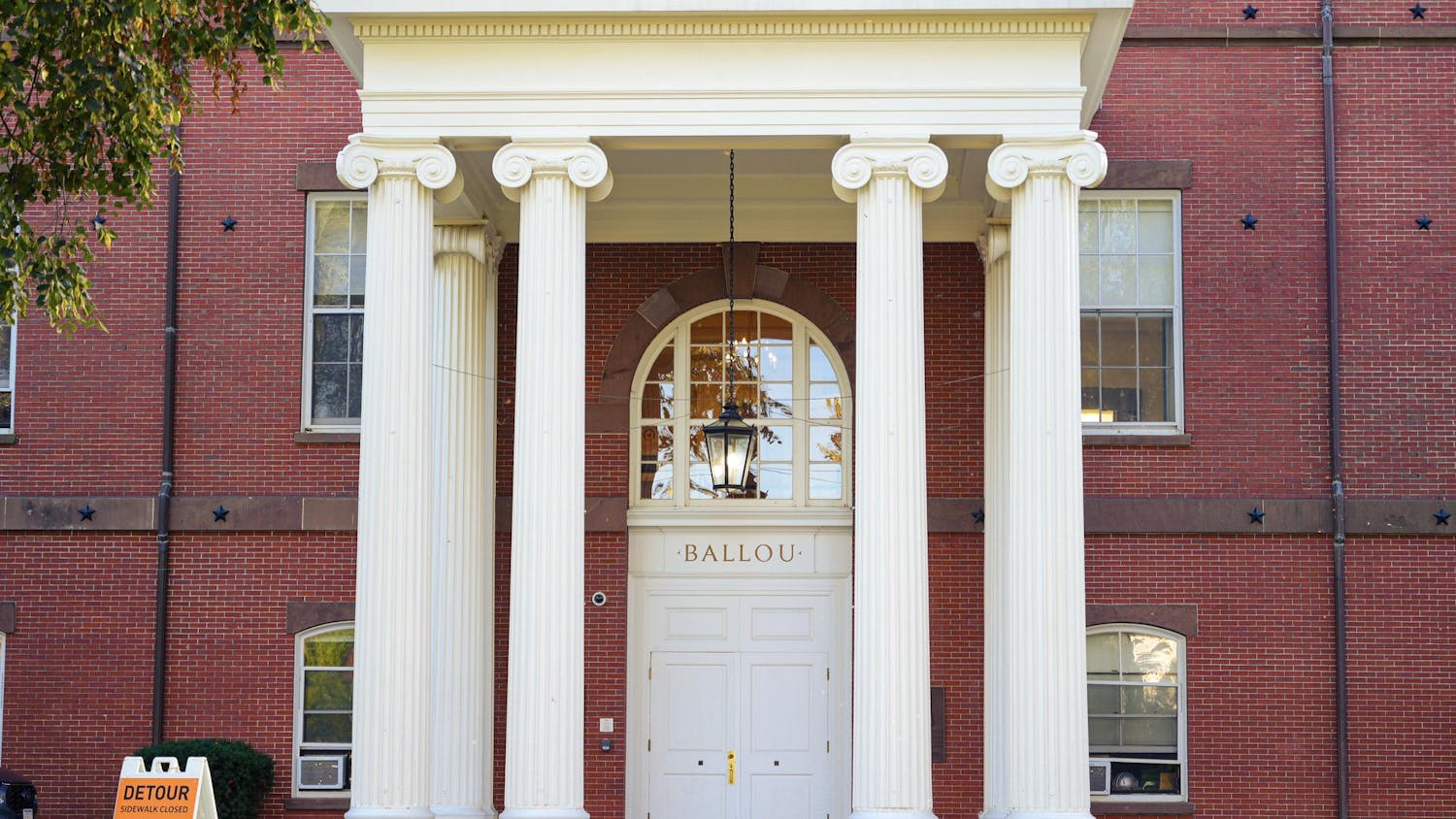The Hoch Cunningham Environmental Lecture Series hosted a discussion with David Bond on Oct. 27 titled “Environmental Justice in the Age of Upheaval.” The discussion explored how certain refineries dumped pollution into unsuspecting communities during the time of reduced government oversight due to the COVID-19 pandemic.
Bond is a cultural anthropologist and professor at Bennington College, where he teaches about the environment and public action. He also serves as the associate director of the Center for the Advancement of Public Action at Bennington.
During the event, which was co-sponsored by the Environmental Studies Program and the Department of Anthropology, Bond spoke about the inspiration behind his new book, “Negative Ecologies: Fossil Fuels and the Discovery of the Environment.”
“During COVID, a lot of environmental oversight was withdrawn — not by design, but because folks were told to stay home,” Bond said. “A lot of the folks who were monitoring [and] regulating were stuck in offices.”
As a result, Bond said, some companies committed “egregious moral injustices,” which he worked to bring to light.
Bond found that he wanted to enact large-scale environmental policy reforms, taking into account how individuals were affected by environmental injustices.
“If you're demanding change on an environmental problem, it helps to speak the language of the state,” Bond said. “At the same time, that language is premised on the erasure of the scale at which people themselves experienced these problems. It's almost anti-ethnographic. It tunes out the ways people experience the problems, and erases the histories of profitable destruction that got us in this mess.”
Bond went on to introduce some of his book’s key arguments, including how environmental science is mainly reactive rather than proactive.
“So much of what we know of the environment comes from how we’ve messed it up,” Bond said. “Environmental knowledge doesn't pre-date disasters, it emerges from disasters. … If environmental science and environmental policy is always responding to disasters, it means that we're not proactive enough to prevent disasters.”
Bond focused on two examples of environmental injustice that recently occurred. The first was Bond’s discovery that an incinerator in upstate New York, run by Norlite, was burning hazardous waste directly next to public housing complexes without residents’ knowledge.
Bond and his students collected samples from upwind and downwind of the incinerator and tested for levels of per- and polyfluoroalkyl substances (PFAS), chemicals that are linked to health issues including liver damage, reproductive issues and immune dysfunction.
“We found elevated levels of PFAS compounds downwind of the incinerator, levels declined with distance from the incinerator and [PFAS were] detected in high levels in the neighborhoods right downwind,” Bond said.
After testing the samples, Bond’s team predicted that the incinerator was spreading PFAS chemicals throughout the local community.
“Far from destroying PFAS, the Norlite plant appears to be raining down a witches’ brew of PFAS compounds on the poor and working-class neighborhoods of Cohoes,” Bond said, restating a quote he had previously shared with The Intercept.
Bond went on to describe how the emerging COVID-19 pandemic made it difficult to get media attention on this issue, prompting him to provide journalists with environmental information so they could write articles to get the public’s attention.
The second case Bond discussed in his talk was an American oil refinery in St. Croix, an island in the U.S. Virgin Islands.
President Obama’s Environmental Protection Agency previously investigated the refinery, finding that the plant was leaking hazardous material into the environment. Following the investigation, the plant declared bankruptcy.
However, the EPA under President Trump rushed to fund the reopening of the refinery before President Biden was sworn into office, meaning the regulations that normally accompany the reopening of a refinery were ignored. As a result, Bond said, the reopening of the refinery was a “disaster.”
“Folks started calling me in December of 2020 and in early 2021 with reports of petrochemical clouds floating across the island,” Bond said.
Bond worked to gain President Biden’s attention by pushing for a story in the Washington Post, eventually getting the EPA to investigate the refinery. The EPA later found that the refinery’s conditions “demonstrate a risk of imminent release of extremely hazardous substances.”
Despite its investigation, Bond believes the EPA’s actions thus far are insufficient, noting the agency does not demand corrective action or launch an enforcement mechanism to hold the plant accountable.
“What [the EPA does] is they send a very polite letter to the new owners [of the plant] asking if they could schedule a time to get together and talk about these concerns,” Bond said. “This is completely unacceptable.”






